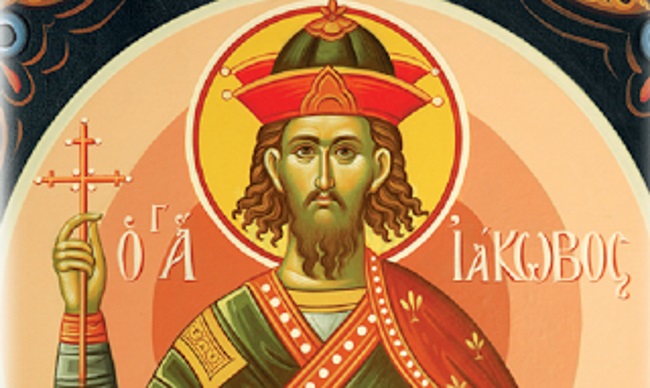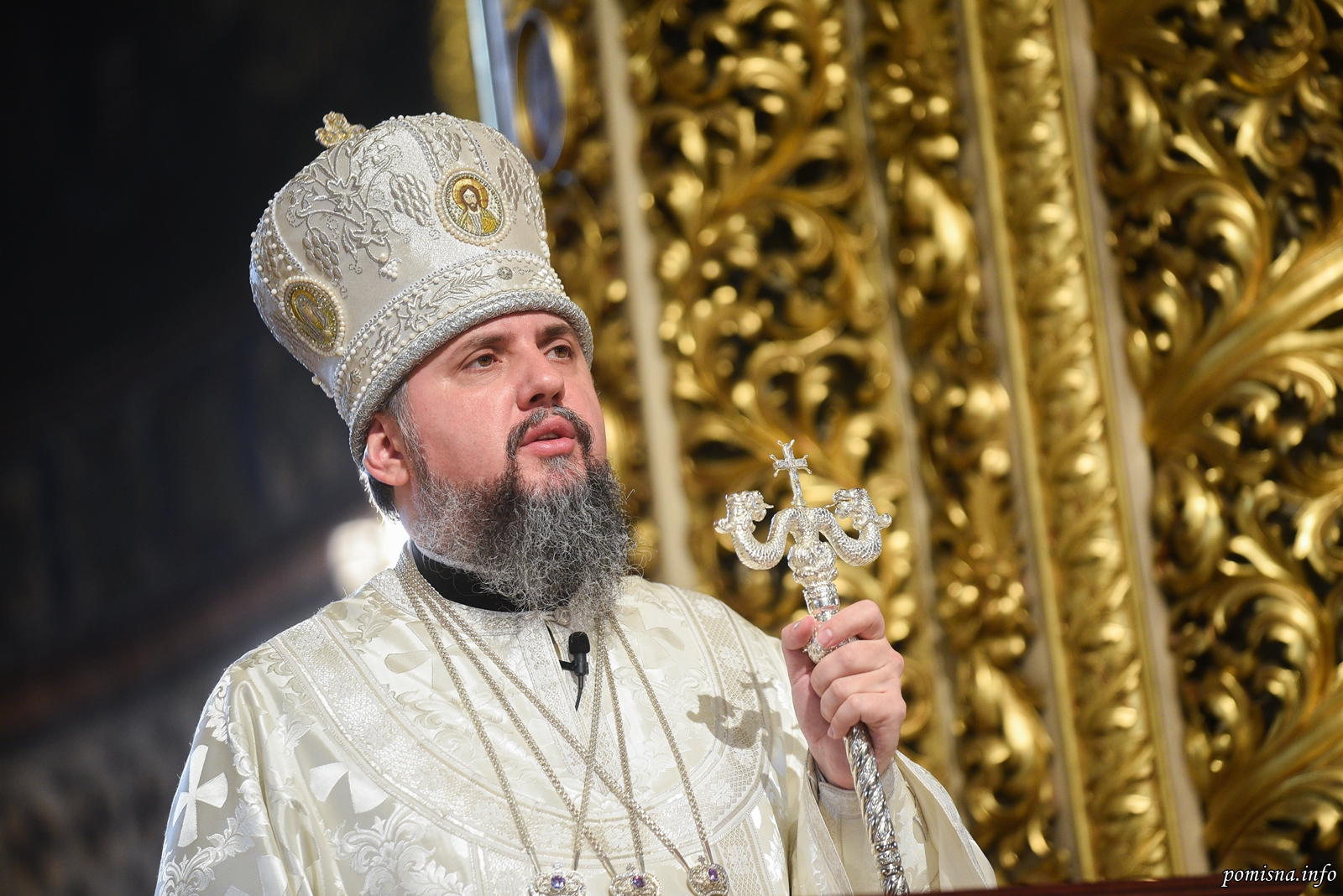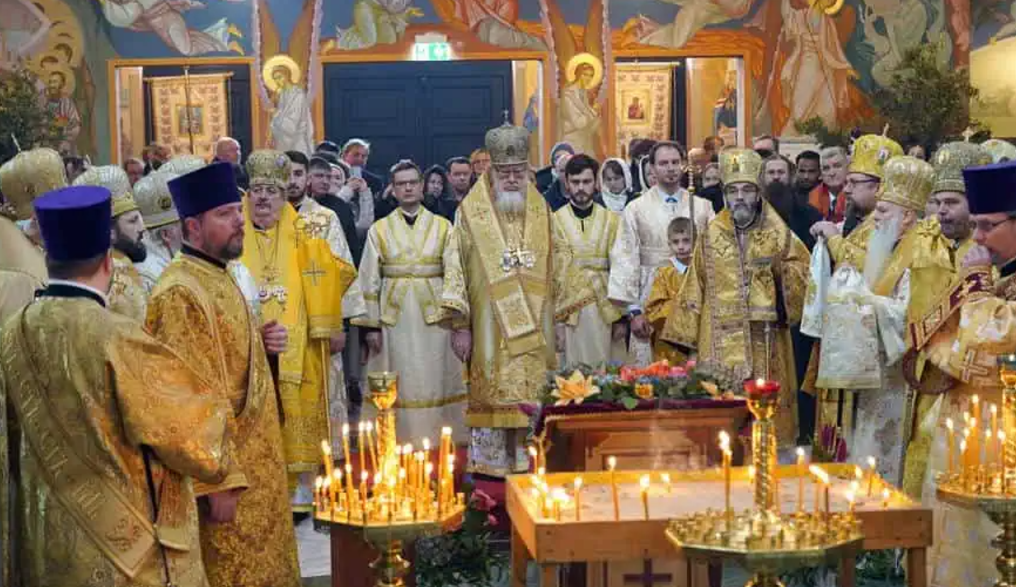Saint James the Great Martyr of Persia (27 November)


The Holy Great Martyr James the Persian (the Sawn-Asunder) was born in the fourth century into a pious Christian family, both wealthy and illustrious. His wife was also a Christian, and the couple raised their children in piety, inspiring in them a love for prayer and the Holy Scriptures. James occupied a high position at the court of the Persian emperor Izdegerd (399-420) and his successor Barakhranes (420-438). But on one of the military campaigns James, seduced by the emperor’s beneficence, was afraid to acknowledge himself a Christian, and so he offered sacrifice to idols with the emperor.
Learning of this, James’ mother and wife wrote him a letter, in which they rebuked him and urged him to repent. Receiving the letter, James realized the gravity of his sin. Faced with the horror of being cut off not only from his family, but also from God Himself, he began to weep loudly, imploring the Lord for forgiveness.
His fellow-soldiers, hearing him pray to the Lord Jesus Christ, reported this to the emperor. Under interrogation, Saint James bravely confessed his faith in the one True God. No amount of urging by the emperor could make him renounce Christ. The emperor then ordered the saint to be put to death.
They began to cut off his fingers and his toes one by one, then his hands and his feet, and then his arms and legs. During the prolonged torture Saint James offered prayers of thanksgiving to the Lord, Who had granted him the possibility of redemption from his sins by enduring these terrible torments. Finally, the martyr was beheaded. Christians gathered up the pieces of his body and buried them with great reverence.


This Saint was from the city of Bythlaba and was of noble birth; he was the closest and most honoured friend of Isdiger (or Yazdegerd) I, King of Persia (reigned 399-420). Though a Christian from his youth, James renounced Christ because he was allured by the King’s friendship and flatteries. When his mother and his wife learned of this, they declared to him by letter that they would have nothing more to do with him, since he had preferred a glory that is temporal to the love of Christ. Wounded in soul by these words and coming to himself, the Saint wept over his error, and repudiated the worship of the idols. Therefore, becoming exceedingly wroth, the King – this was Bahram (or Varahran) V (reigned 421-438), Isdiger’s son and successor – condemned him to a most bitter death, the likes of which not even a brute beast was ever condemned to: that is, his body was dismembered at every joint of his arms and legs. And so, when he had been cut asunder limb by limb to his very hips and shoulders, the courageous Martyr was finally beheaded, in the year 421.
James was born of Christian parents in the Persian city of Elapa (or Vilat), brought up in the Christian Faith and married to a Christian woman. The Persian King Yezdegeherd took a liking to James for his talents and skillfulness, and made him a noble at his court. Flattered by the king, James was deluded and began offering sacrifices to the idols that the king worshiped. His mother and wife learned of this, and wrote him a letter of reproach in which they grieved over him as an apostate and one who was spiritually dead. Yet, at the end of the letter, they begged him to repent and return to Christ. Moved by this letter, James repented bitterly, and courageously confessed his faith in Christ the Lord to the king. Angered, the king condemned him to death by a special torture: his entire body was to be cut up, piece by piece, until he breathed his last. The executioners fulfilled this command of the wicked king to the letter, and cut off James’s fingers, then his toes, his legs and arms, his shoulders, and finally his head. During every cutting, the repentant martyr gave thanks to God. A sweet-smelling fragrance, as of a cypress, emanated from the wounds. Thus, this wonderful man repented of his sin and presented his soul to Christ his God in the Kingdom of Heaven. James suffered in about the year 400 A.D. His head is to be found in Rome and a part of his relics in Portugal, where he is commemorated on May 22.
Apolytikion of Martyr James the Persian
First Tone
Be entreated, O Lord, by the sufferings endured for You by the Saints, and we pray You, heal all our pain.
Kontakion of Martyr James the Persian
Second Tone
O stout-hearted James, persuaded by thy noble wife, and fearing the dread tribunal, thou didst scorn all fear of the Persians with their profane decrees, and thou wast shown forth to be a most wondrous martyr of Christ, when all of thy body was pruned like a vine.
Source: oca.org / goarch.org / westserbdio.org




